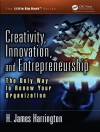In the United States, the express purpose of regulation is, according to a 1993 executive order, to ‘protect or improve the health and safety of the public, the environment, or the well-being of the American people.’ However well intentioned, all human action carries with it the potential for secondary, sometimes negative, consequences. In the case of regulation, these consequences may cause harm-by exacerbating poverty, increasing opportunity inequality, raising prices, or reducing economic growth.
The late Jerry Ellig-economist, teacher, writer-argued that before imposing regulations on individuals and their activities, policymakers must conduct the kind of economic analysis that can deliver rational regulation. This process requires asking: How significant is the problem the regulation seeks to address? What is the root cause of the problem? Are there alternative ways to address the cause, and how effective might they be? What are the benefits and costs to society of each alternative?
These are the questions Ellig sought to answer-whether conducting research at the George Washington University Regulatory Studies Center, serving as chief economist at the Federal Communications Commission, delivering testimony at a congressional hearing, or teaching students at the Mercatus Center at George Mason University. As this memorial collection shows, improvements in the regulatory process can foster the life-enhancing innovation and dynamic competition on which future prosperity depends.
عن المؤلف
Patrick A. Mc Laughlin is the Director of Policy Analytics and a Senior Research Fellow at the Mercatus Center at George Mason University. His research focuses primarily on regulations and the regulatory process. His research and op-eds have been featured in a wide range of media outlets including The Economist, C-SPAN, WSJ, Politico, and The Hill.Mc Laughlin created and leads the Reg Data and Quant Gov projects, deploying machine learning and other tools of data science to quantify governance indicators found in federal and state regulations and other policy documents. The resulting database is freely available at Quant Gov.org.Before joining Mercatus, Mc Laughlin served as a Senior Economist at the Federal Railroad Administration in the United States Department of Transportation and as a Visiting Scholar at the Regulatory Studies Center at George Washington University. He holds a Ph.D. in economics from Clemson University.Patrick first met Jerry in 2008, when Patrick interviewed for a position at Mercatus. Jerry was a big reason that Patrick accepted Mercatus’s offer.












